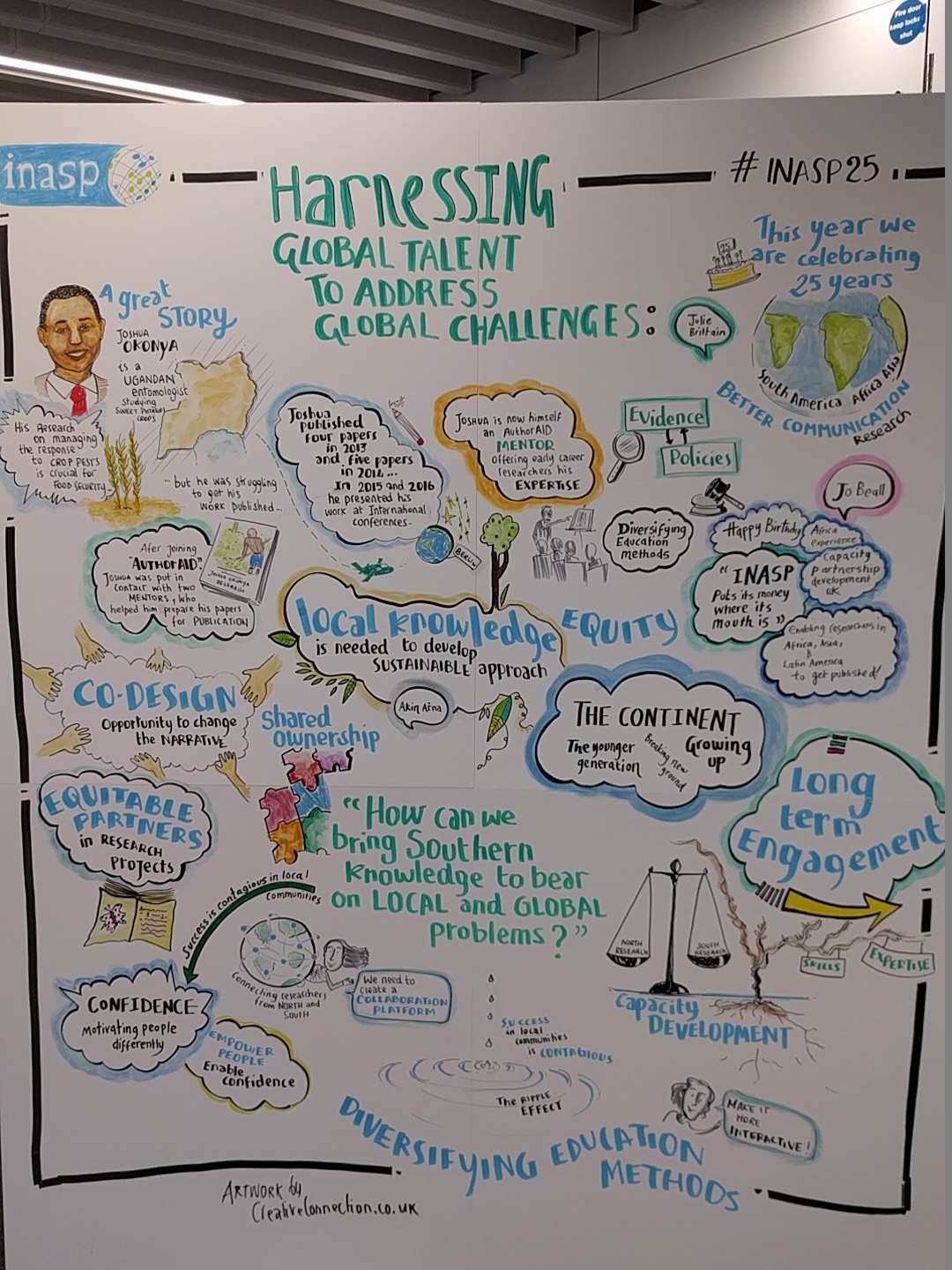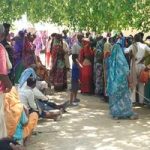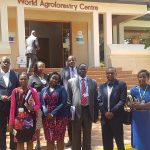
Global challenges need global talent
On Tuesday night, at a reception we hosted during the British Council’s Going Global conference in London, we welcomed higher education and research leaders from across the world to think about how global talent could be harnessed to address global challenges.
By global talent we meant the researchers, policymakers, civil society actors and others who play key roles in generating knowledge and bringing it to bear – on local problems and on global issues.
All too often southern experts – skilled, knowledgeable, connected and passionate – are missing from international research projects. It’s something we want to correct – and we know many others do too.
At INASP we are celebrating 25 years this year. Over this time we have built a global network of partners all concerned with bringing knowledge – generated in the South and by the South – to bear on local and global problems. In that time we’ve also learnt a lot about what capacity development really means: how to do it well, how to achieve real, lasting change, and how to ensure it not only meets the needs of but is also co-conceived with Southern partners.
The UK government has announced a series of major new investments in generating new knowledge to address complex issues in health, climate, and livelihoods amongst others, including a £1.5 billion Global Challenges Research Fund (GCRF). This is funding designed to address some of the big questions that lie at the heart of the Sustainable Development Goals (SDGs). And, as Jo Beall reminded us on Tuesday evening, we won’t be able to produce the kind of evidence that the SDGs require unless Southern researchers have the opportunities to contribute. Lasting impact requires local knowledge.
The Global Challenges Research Fund recently announced plans to invest in a series of major interdisciplinary and multi-institutional hubs (alongside a series of existing and future calls), which bring together teams of researchers to address such complex questions, to build capacity to do this work into the future, and to engage policymakers and practitioners in the process.
It’s an ambitious fund. Undertaking pioneering research, influencing policy and practice, and building capacity are not easy things to do together – but they absolutely should be if research is really to address the challenges that developing countries must urgently tackle. It is also part of the UK’s overseas development aid (ODA) funding – which means development impact must be a front and central concern.
Tuesday night gave us an opportunity to reflect on our experiences – and those of our guests – as we consider what is still to be done to assist our partners to develop strong research and knowledge systems. We think we can offer something to UK universities too.
As Tade Aina reminded everyone at our event, there are talented, energetic researchers all across Africa. Research agendas must be co-created, and projects forged and delivered in in genuine partnership. Capacity for excellent research already exists – but the GCRF and similar funds offer a means of growing and deepening that capacity, strengthening the foundations for future collaboration.
On 28 June we are hosting a seminar in Oxford. It will be an opportunity to discuss some of these issues in more depth, to share ideas and experiences. We welcome research leads, PIs and research coordinators who want to do something different as they approach new funding calls such as the GCRF. We can help people to really address the difficult questions of long-term, lasting capacity in Southern research, and to go beyond simply communicating new messages to policymakers, but actively engaging them in the learning process.
If you’d like to know more sign up here.

 Previous Post
Previous Post Next Post
Next Post


